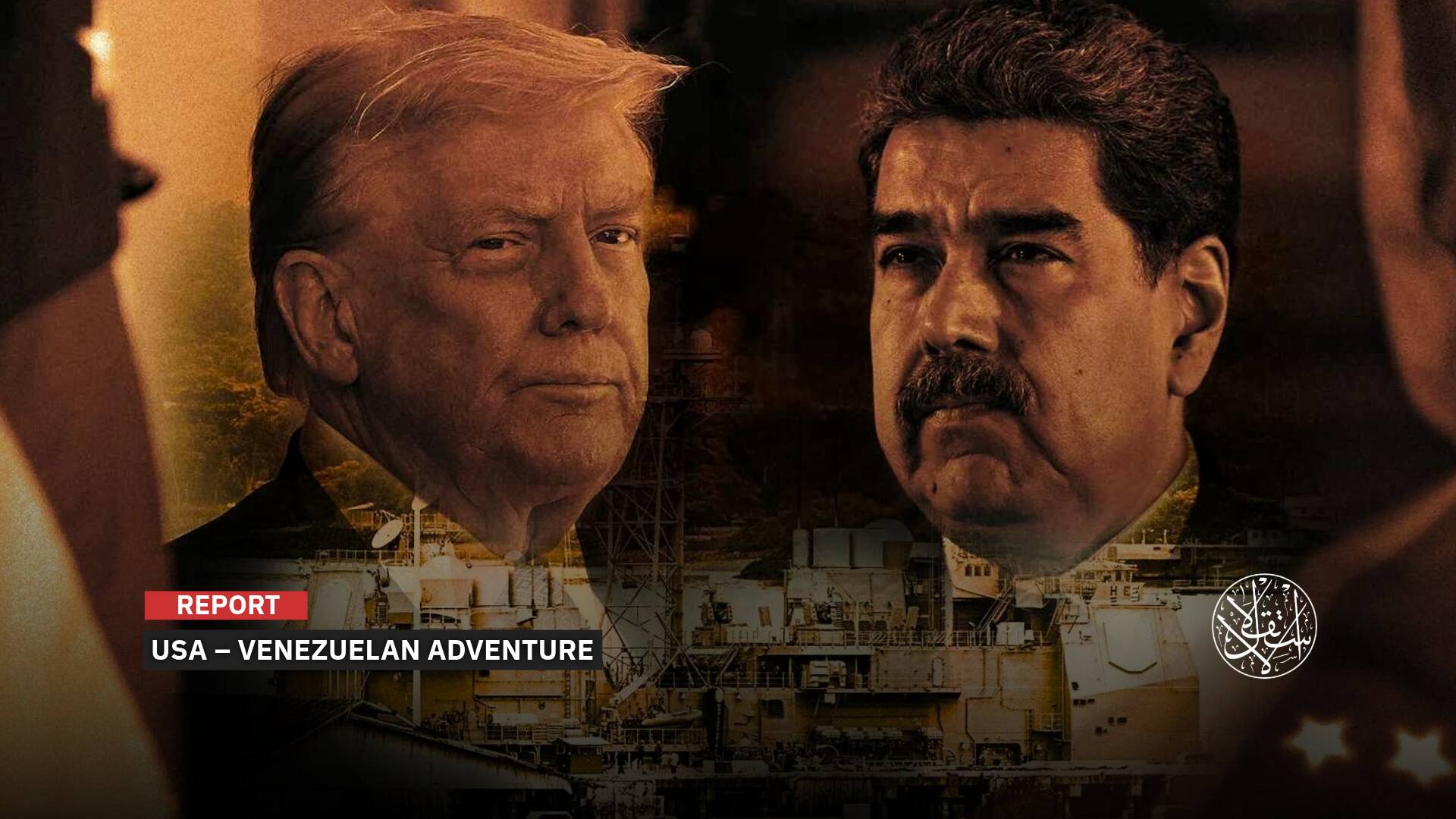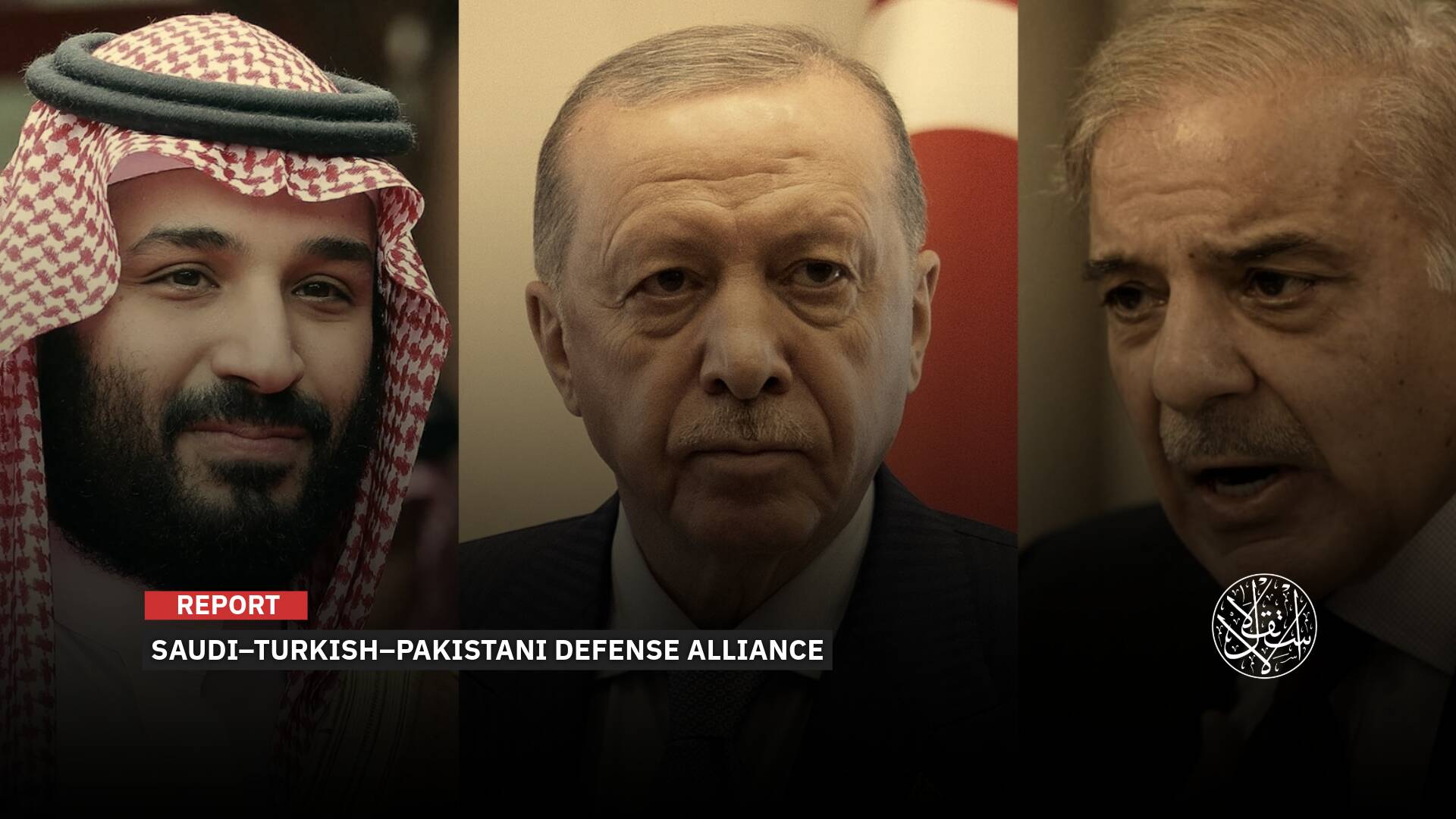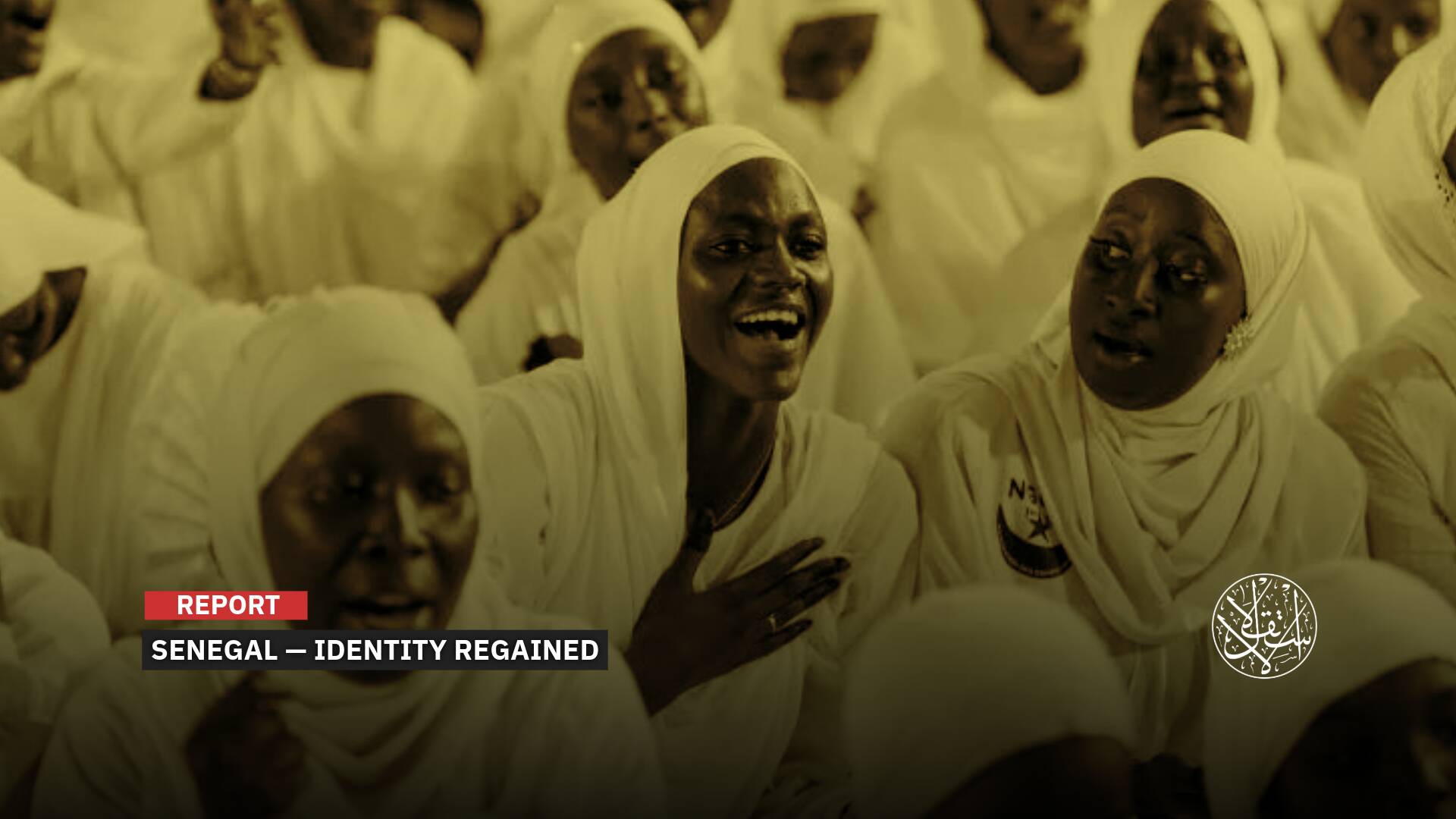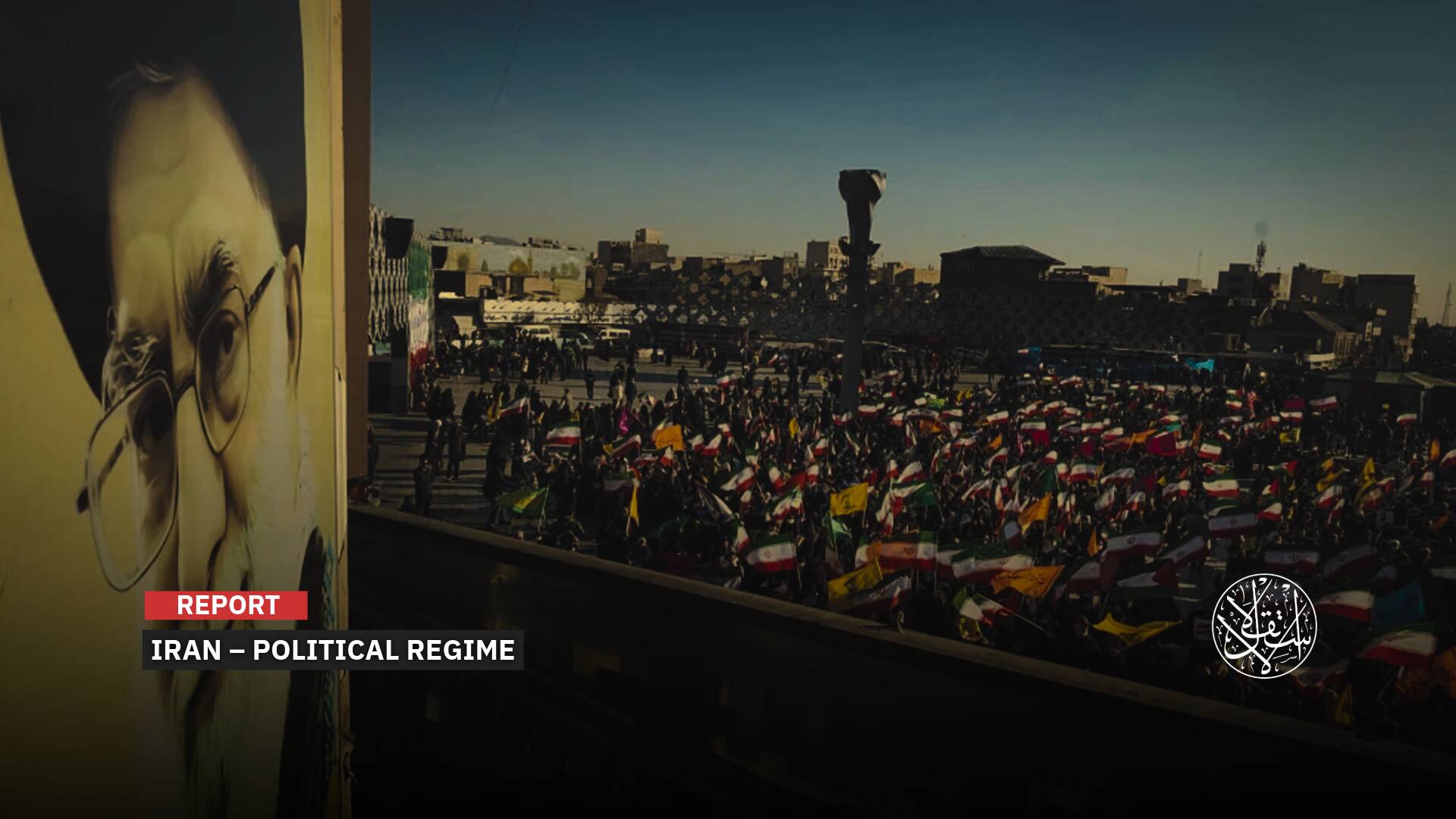Clans' Reclaiming Territories in Deir ez-Zor, Syria: How Will it Affect Turkiye's Plan to Eliminate SDF?

In just a few days, the sons of Arab tribes in the Syrian governorate of Deir ez-Zor have managed to shift the balance of control and influence there at the expense of the Syrian Democratic Forces (SDF), supported by Washington.
Members of various Deir ez-Zor tribes have taken up arms and initiated an uprising against the Syrian Democratic Forces (SDF) in an effort to halt their foreign policies and address multiple grievances, notably the alleged misappropriation of the region's oil and gas reserves.
Since August 27, 2023, the tribal members have engaged in armed clashes with the SDF in several villages and towns in Deir ez-Zor, specifically on the left bank of the oil-rich Euphrates River. They have successfully expelled them from some areas and removed their checkpoints.
A New Equation
Military analysts interpret these sudden changes in Deir ez-Zor as a comforting development for Turkiye. This is because it weakens the SDF, which Ankara has threatened with a ground military operation since May 23, 2022, to expand its "security zone" along its southern border with Syria.
This potential Turkish military operation aims to create a larger safe zone within Syrian territory, extending 30 kilometers deep, for Syrians fleeing Bashar al-Assad's regime.
Additionally, there have been repeated calls from the residents of northern Syrian regions to be liberated from the control of the Kurdistan Workers' Party (PKK) branches.
The PKK is the spiritual father of all armed Kurdish organizations in Syria and Iraq that dream of secession and the establishment of a "Greater Kurdistan."
The YPG forces are the backbone of the SDF, supported by the U.S.-led international coalition. They are the armed wing of the Democratic Union Party (PYD), the Syrian branch of the PKK.
Ankara, Washington, and several European capitals classify the PKK as a terrorist organization due to its decades-long armed attacks inside Turkiye.
The Turkish Foreign Ministry commented on the ongoing clashes between the tribal members and the Syrian Democratic Forces in various areas of Deir ez-Zor.
In a statement posted on X on September 1, 2023, the ministry expressed, "We are closely monitoring with concern the clashes that have been taking place for some time in the countryside of Deir ez-Zor between the branches of the separatist terrorist organization in Syria and some Arab tribes."
They saw this development as a new facet of the terrorist organization's attempts to dominate the ancient Syrian people by exerting violence and pressure and violating their fundamental human rights.
They expressed hope that supporters of the Syrian Democratic Forces (SDF) would, without further delay, recognize the true nature of the terrorist organization, which seeks to conceal its true purposes and intentions by claiming to be actively fighting against ISIS. They also hoped that this recognition would not lead to further suffering for the indigenous people of the region, including the Syrian Kurds.
As of the latest estimates, the Syrian Democratic Forces (SDF), formed with support from the United States in October 2015, consists of approximately 45,000 fighters, with more than half being Arabs and the remainder being a mix of Kurds and various ethnicities, according to a statement from the U.S. Department of Defense.
U.S. forces are deployed in 11 military bases and points within areas controlled by the SDF in northeastern Syria.
These predominantly Arab areas are home to approximately 2.5 million people out of Syria's total population of 23 million. Around 7 million people from these areas have fled abroad since the war, and these regions are known as Syria's breadbasket.
There is a close connection between the tribes' efforts to regain control of some areas in Deir ez-Zor and the goal of pushing the Syrian Democratic Forces (SDF) out of these areas. There is also a link to Turkey's determination to expel the Kurdish Workers' Party (PKK) affiliate from areas it currently controls, primarily in the countryside of Aleppo, ar-Raqqah, Hasakah, and beyond.
Many members of the Syrian National Army, which Turkiye supported in previous military operations within Syria, are from the very regions that the SDF forcibly displaced them from with American military assistance.
Popular Demands
There is a strong correlation between the tribes regaining control of some of their territories in Deir ez-Zor and Turkey's determination to expel the branches of the PKK from the areas they currently dominate in the outskirts of Aleppo, ar-Raqqah, and Hasakah.
Many members of the Syrian opposition's National Army, which Turkiye supported in its previous military operations inside Syria, come from the regions that were forcibly evacuated by the SDF with the backing of American arms. There are also popular demands among the Syrian National Army, supported by Turkiye, to expel the SDF militia from their cities in Deir ez-Zor, ar-Raqqah, Hasakah, and the outskirts of Aleppo, from which they were displaced to northern Syria since 2013.
The recent mobilization in Deir ez-Zor and the declaration of Arab tribes to combat the SDF stem from the desire to put an end to the policies pursued by the latter over the past three years.
These policies include a lack of respect for the region's autonomy, marginalization of its Arab component, oil theft, neglect of basic services, and attempts to enforce compulsory conscription on the youth.
In this context, Brigadier General Ziad Hajj Obeid, a leader in the opposition Syrian National Army, emphasized that the various branches of the PKK work to implement external agendas that are not in the interest of the Syrian people. Their actions contribute to dividing the unity of the Syrian people, seizing their resources, and maintaining control over the northeastern region for the past seven years without establishing security, all under the pretext of the presence of ISIS cells.
Hajj Obeid further explained to Al-Estiklal that the PKK's branches have entered into agreements with Iranian militias, which has a significant impact on the region.
He expressed concerns about Tehran's expansion in northeastern Syria, facilitated by the leadership of the PKK, and this is why tribal groups have mobilized to protect their territories and curb the racist policies of the PKK.
Logistical Support
Hajj Obeid stressed that "what is expected from Turkiye is to provide support to the Arab tribes in Deir ez-Zor to confront the SDF militia in the eastern region, expel them from Arab areas, and besiege them in some areas. It is also crucial to resume organized military operations in coordination with the factions of the Syrian National Army to eliminate the separatist PKK project in Syria through a comprehensive military campaign east of the Euphrates."
Meanwhile, Colonel Ahmed Hamada, a military and strategic analyst, believes that "the battle the Arab component is seeking to wage to expel the SDF militia from their areas in Deir ez-Zor that extend to the Iraqi border will later impact the presence and strength of the SDF."
It will first deprive them of the material resources the region possesses, in addition to the human resources.
Hamada added to Al-Estiklal, "This battle also undermines the idea of establishing self-administration in northeastern Syria, which is an attempt to give a civilian facade to a policy and a racist concept that the SDF is trying to instill in the region.
"If support is provided to other areas by the opposition Syrian army and Turkiye, which is fighting against the PKK, whether by opening new fronts through international agreements or by backing the tribal army in Deir ez-Zor logistically, materially, and with intelligence, it will cut off the path for the SDF to establish a state or self-administration in northeastern Syria."
It is noteworthy that the outbreak of conflicts between the PKK branches and Arab tribes in Syria has extended from Deir ez-Zor Governorate to the countryside of Manbij in Aleppo Governorate, as well as ar-Raqqah and Hasakah countryside.
This indicates Turkiye's implicit acceptance of the move concerning areas under the influence of those branches in the region.
The offensive by the Arab tribes resulted in the seizure of villages such as al-Muhsinli, al-Mahmudiyah, and Arab Hassan Kabir on September 3, 2023, north of Manbij, in addition to a hill known as Syriatel.
The recent gains favor the strategic advance toward the city of Manbij, currently under the control of the SDF since August 2016 and situated 80 kilometers from the Turkish border.
Manbij, along with the towns of Tell Rifaat and Ayn al-Arab in the Aleppo countryside, falls within the security zone that Ankara aims to establish in Syria to expel PKK elements and its affiliates.
Manbij is considered an economic lifeline and a trade gateway for northern and eastern Syria, linking the areas under SDF control in eastern Euphrates (Deir ez-Zor, ar-Raqqah, Qamishli, and Hasakah) and is close to the city of Ayn al-Arab, located just 60 kilometers away.
On November 23, 2022, Turkish President Recep Tayyip Erdogan pledged to "uproot the terrorists" from the cities of Tall Rifat, Manbij, and Ayn al-Arab in northern Syria.
Turkish Satisfaction
Regarding this matter, military expert Ahmed Rahal believes that "the American silence about what happened to their ally, the SDF, indicates that they wanted to discipline the leadership of the SDF, which rejected all American demands, whether related to restructuring or forming a joint leadership representing all components, not just those from the Qandil Mountains in Iraq."
Rahal stated during a television interview on August 3, 2023, that "Turkiye, while not actively participating on the ground in what is happening in Deir ez-Zor, seemed comfortable with the weakening of the SDF."
He also pointed out that "there will be a restructuring of the Deir ez-Zor Military Council, and there will be local councils separate from the SDF, assigned by the international coalition led by Washington to serve as a compromise between the two parties."
Rahal concluded by saying, "But what recently happened to the SDF at the hands of the tribes indicates the need for its restructuring and the necessity of a partnership with the Arab tribal component, especially with factions affiliated with the SDF that refuse to fight against their own people."
In a voice recording published on August 30, 2023, Sheikh Ibrahim al-Hafel, the leader of al-Uqaydat tribe, called for unity and a common stance against the SDF. He emphasized that "the movement is purely tribal and not, as the SDF claims, that it is a move against terrorist cells."
Al-Hafel sent a message to the international coalition from his home in the recently liberated town of Diban.
In this message, he called for the formation of a military leadership council comprising respected figures from the tribes of Deir ez-Zor.
This council would establish direct communication with the international coalition to ensure security, safety, and the provision of services in the region.
Similarly, Sheikh Abdul Aziz al-Hammada, the leader of the al-Bakir tribe, issued a video statement on August 30, 2023.
In his statement, he urged the international coalition to support the creation of a new civilian administration that would represent the will of the local population and possess transparency and efficiency.
He also called on the coalition to ensure that the mistakes of the previous military and civilian administrations were not repeated. These previous administrations had misused their resources for personal gain, disregarding the stability of Deir ez-Zor.
In light of these developments, Syrian researcher Abbas Sharifa argued that Washington was not responsible for the escalation of the situation in Deir ez-Zor. He pointed out that there were "Turkish-American understandings to limit the role of the SDF and distribute oil to all areas of Syria, including northern Syria," which is beyond the control of the Assad regime and is home to approximately 5 million displaced individuals along the Syrian-Turkish border.
On September 3, 2023, Abbas Sharifa posted on Facebook, stating that the United States would capitalize on the recent events to reshape the landscape and reduce the influence of the Syrian Democratic Forces (SDF) for several reasons. One of these reasons is the SDF's failure to represent all Kurdish components effectively.
Sharifa mentioned that the SDF had failed in its dialogue with the Kurdish National Council, and it faced Arab resentment due to its dominance over Arab areas. The SDF's security coordination with Russia and Iran played a role in this development, as per Sharifa's analysis.
Sources
- The Turkish Foreign Ministry comments on the Deir ez-Zur confrontations: We hope that SDF supporters will see their reality [Arabic]
- Arab tribal militants liberate 24 villages from the PKK in eastern Syria [Arabic]
- The battlefield goes beyond Deir ez-Zor, the clans attack “SDF” in the countryside of Hasakah, ar-Raqqah and Aleppo [Arabic]










